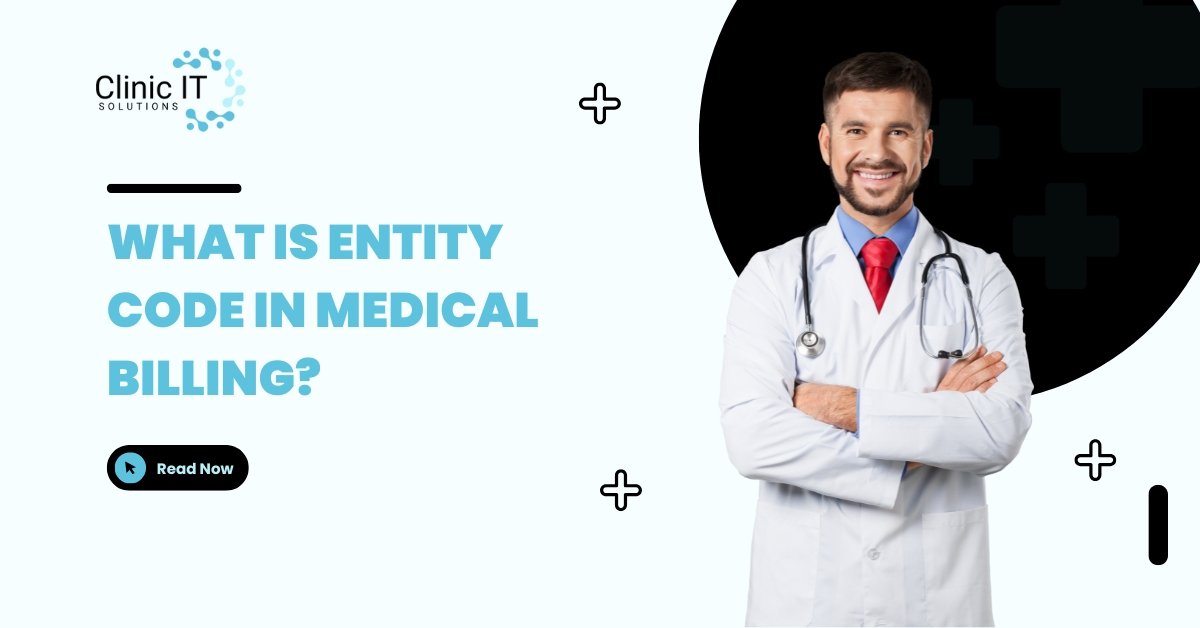Entity Code in Medical Billing:
Entity code in medical billing is an essential process in the healthcare industry, ensuring that healthcare providers receive accurate and timely reimbursement for the services they provide. In this article, we will explore what entity codes are, their importance in medical billing solutions, and how outsourced credentialing sources contribute to streamlining the billing process.
What is an Entity Code in Medical Billing?
Entity codes can take various forms, but in many cases, they refer to National Provider Identifiers (NPIs) in the U.S. These codes help insurance companies, billing departments, and other healthcare entities quickly match services to the correct provider, reducing errors and streamlining the claims process.
Why are Entity Codes Important in Medical Billing Solutions?
The role of entity codes in medical billing solutions is crucial for ensuring that the billing process runs smoothly and efficiently. Without these codes, the system would struggle to correctly link healthcare services to the right provider, leading to errors, claim denials, and delayed payments.
Here are a few key reasons why entity codes are vital in medical billing:
- Accuracy in Claims Processing: Entity codes ensure that every claim is correctly matched with the healthcare provider, reducing the chance of errors and denials.
- Increased Efficiency: By automating the claims process using entity codes, healthcare organizations can speed up the billing cycle and ensure faster payments.
- Improved Reimbursement Rates: Properly assigned entity codes help healthcare providers get reimbursed for their services more quickly and at higher rates, as claims are processed accurately from the start.
Role of Outsourced Credentialing Sources in Medical Billing
Credentialing is the process of verifying a healthcare provider’s qualifications, experience, and eligibility to provide services. Outsourced credentialing sources are third-party organizations that handle this important task, ensuring that healthcare providers meet all the necessary requirements for billing and reimbursement.
When it comes to medical billing solutions, outsourced credentialing sources are essential for maintaining the accuracy of entity codes and other billing data. These third-party companies ensure that a healthcare provider’s credentials are verified and up-to-date, preventing billing errors and claims rejections.
The role of outsourced credentialing sources includes:
- Credential Verification: Ensuring that healthcare providers meet the necessary standards and that their entity codes reflect their qualifications.
- Timely Updates: Keeping the entity code records up to date, ensuring that any changes to a provider’s status are reflected in real time.
- Reduced Risk of Denied Claims: By maintaining accurate credentialing and entity codes, outsourced credentialing sources reduce the risk of claim denials due to mismatched or outdated information.
How Entity Codes and Outsourced Credentialing Sources Work Together
Healthcare providers or organizations involved in the billing and claims process receive a unique identifier known as an entity code. This code differentiates between various healthcare entities, such as doctors, hospitals, clinics, or medical specialists.
For example, if a healthcare provider’s credentials expire or are updated, outsourced credentialing sources will immediately update the entity code in the system. This prevents any delays or issues in processing claims.
Benefits of Outsourcing Credentialing in Medical Billing
Using outsourced credentialing sources in medical billing solutions offers several benefits for healthcare organizations:
- Cost Savings: Outsourcing the credentialing process can save healthcare providers money .
- Outsourced credentialing sources: use their specialized knowledge to manage the credentialing process.
- Focus on Core Activities: By outsourcing credentialing, healthcare providers can focus on patient care and other core activities.
FAQs About Entity Codes and Outsourced Credentialing in Medical Billing
1. What is an entity code in medical billing?
2. How do entity codes affect medical billing?
Entity codes are crucial for ensuring that claims are accurately linked to the correct healthcare provider. They help reduce errors in billing, prevent claim denials, and ensure timely reimbursement for healthcare services.
3. What role do outsourced credentialing sources play in medical billing?
Outsourced credentialing sources verify and maintain the credentials of healthcare providers. They also keep entity code into records up to date.
4. How do outsourced credentialing services benefit healthcare organizations?
Outsourcing credentialing helps healthcare organizations save time and money, ensures compliance with industry standards. It also allows healthcare providers to focus on patient care instead of administrative tasks.
5. Why are entity codes important in the credentialing process?
Entity codes directly tie to a healthcare provider’s credentials.
Conclusion
Medical billing solutions, entity codes and outsourced credentialing sources are essential for ensuring accuracy, efficiency, and timely reimbursement. By understanding how entity codes Embracing these practices allows healthcare organizations to focus on what matters most: patient care








